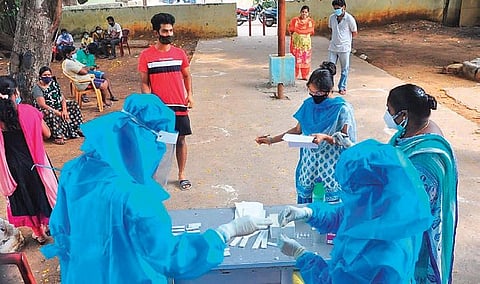

BENGALURU: From affecting the kidneys, lungs and heart, many doctors are now seeing cases of facial nerve paralysism called as Bell’s palsy, amongst Covid-19 patients.
They warn that if this is left untreated, it can lead to Guillain Barre syndrome (rare disorder in which the immune system attacks the nerves and can paralyse the whole body).
Bell’s palsy is a condition that causes temporary weakness or paralysis of the facial muscles. It can usually occur when a nerve that controls the muscles becomes inflamed, swollen or compressed.
Recently, a 50-year-old man had facial paralysis which was preceded by cold. He sought medical intervention at a private hospital and, upon conducting a test, he tested positive for Covid-19.
Dr Anuradha H K, Neurology consultant at Aster CMI Hospital, said that in the last 3 months, she had come across 15-20 cases of Bell’s paralysis and that the exact aetiology (cause) is unknown.
“We think that the Covid-19 infection is causing inflammation of the facial nerve. Facial paralysis has been happening among patients of all age groups. The consolation is that the condition is not life-threatening and can be easily managed.”
Dr Saravanan S, Neurologist, Prakriya Hospitals said, “The post-infectious peripheral nerve demyelination is known to cause Bell’s palsy. If a patient develops paralysis on both sides rapidly, then they need to be monitored to see if they are developing Guillain Barre syndrome and should be treated early.”
Doctors also say that the condition is being seen post recovery too among Covid-19 patients.
“In some cases, facial paralysis is seen after a week or 10 days of Covid infection, which suggests probable inflammatory aetiology post infection. Also, diabetic patients currently are at an increased risk of Bell’s palsy because of lower immunity levels,” added Dr Anuradha.